Tow me the money | Up for possible vote next week: Bloomington ordinance regulating companies that remove cars parked illegally on private property
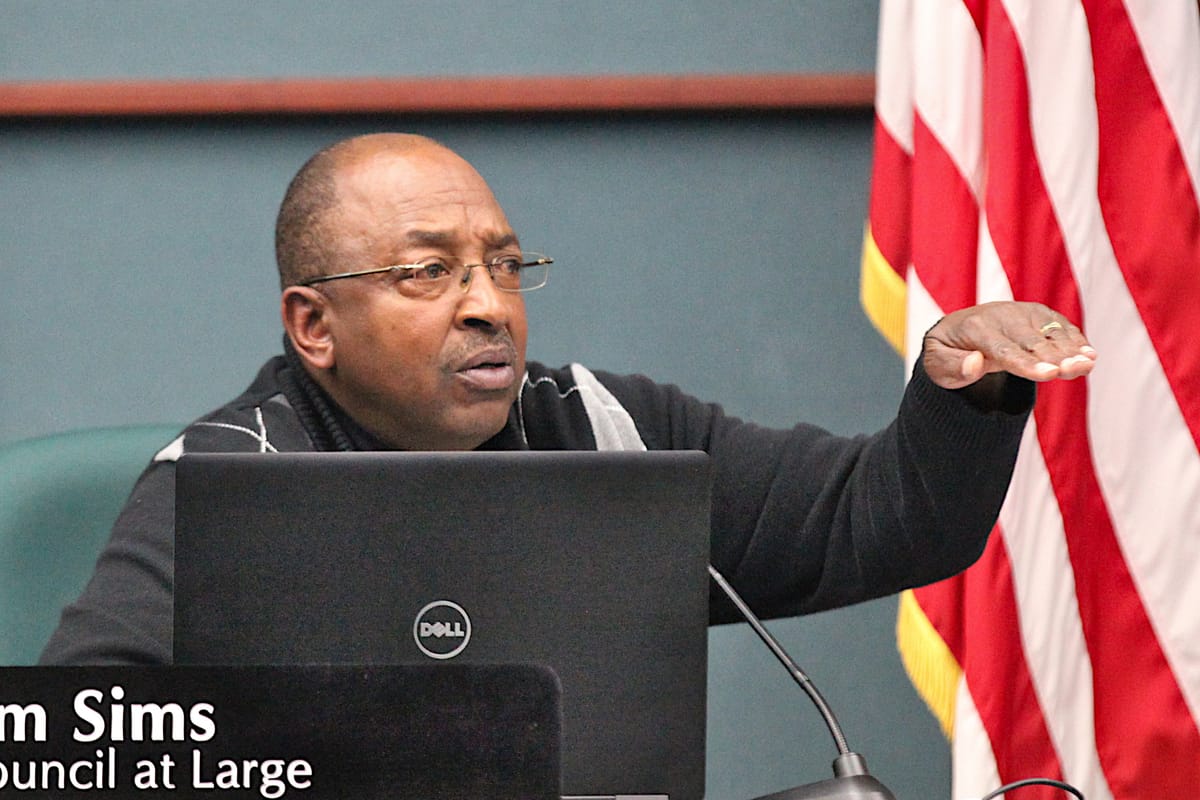
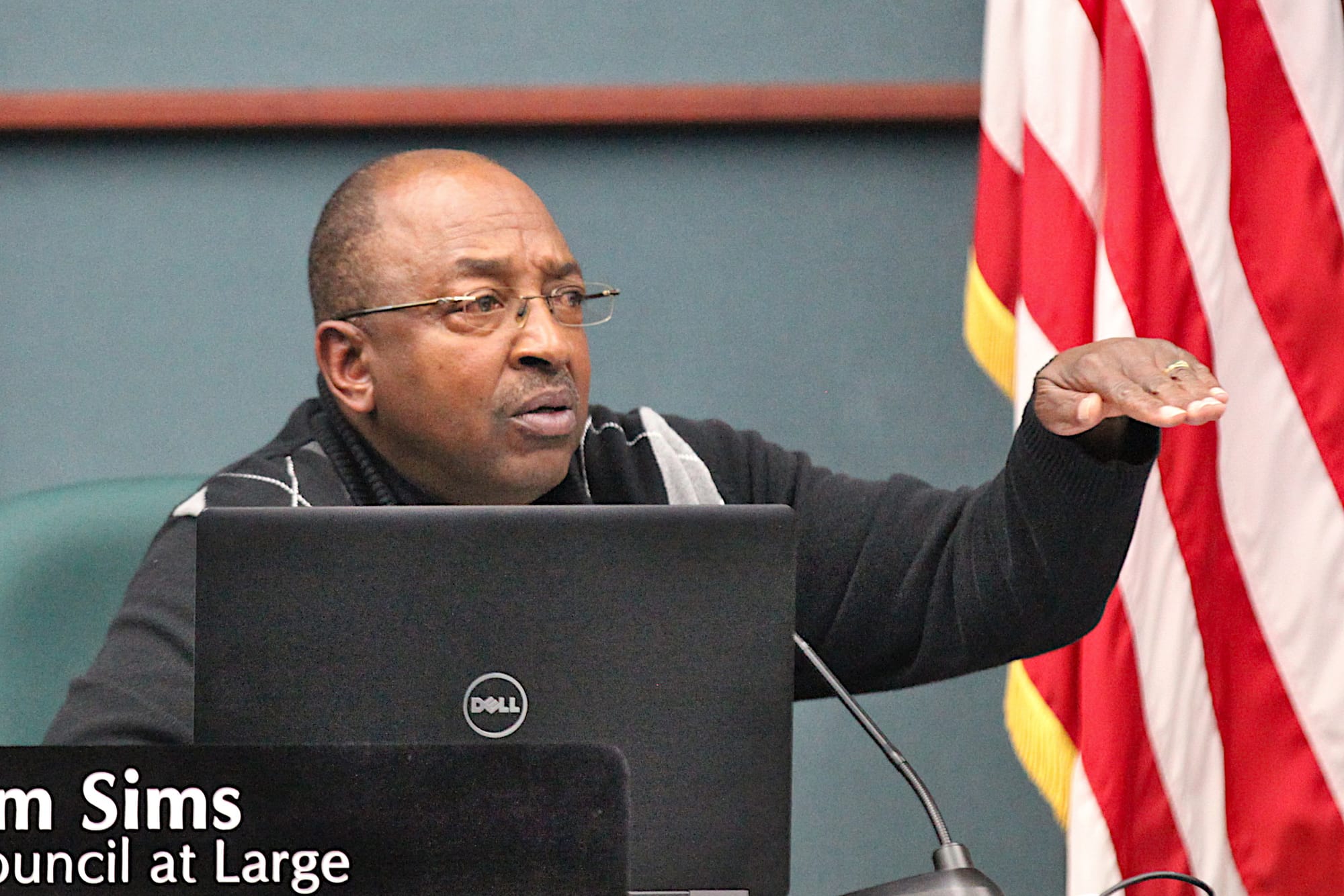
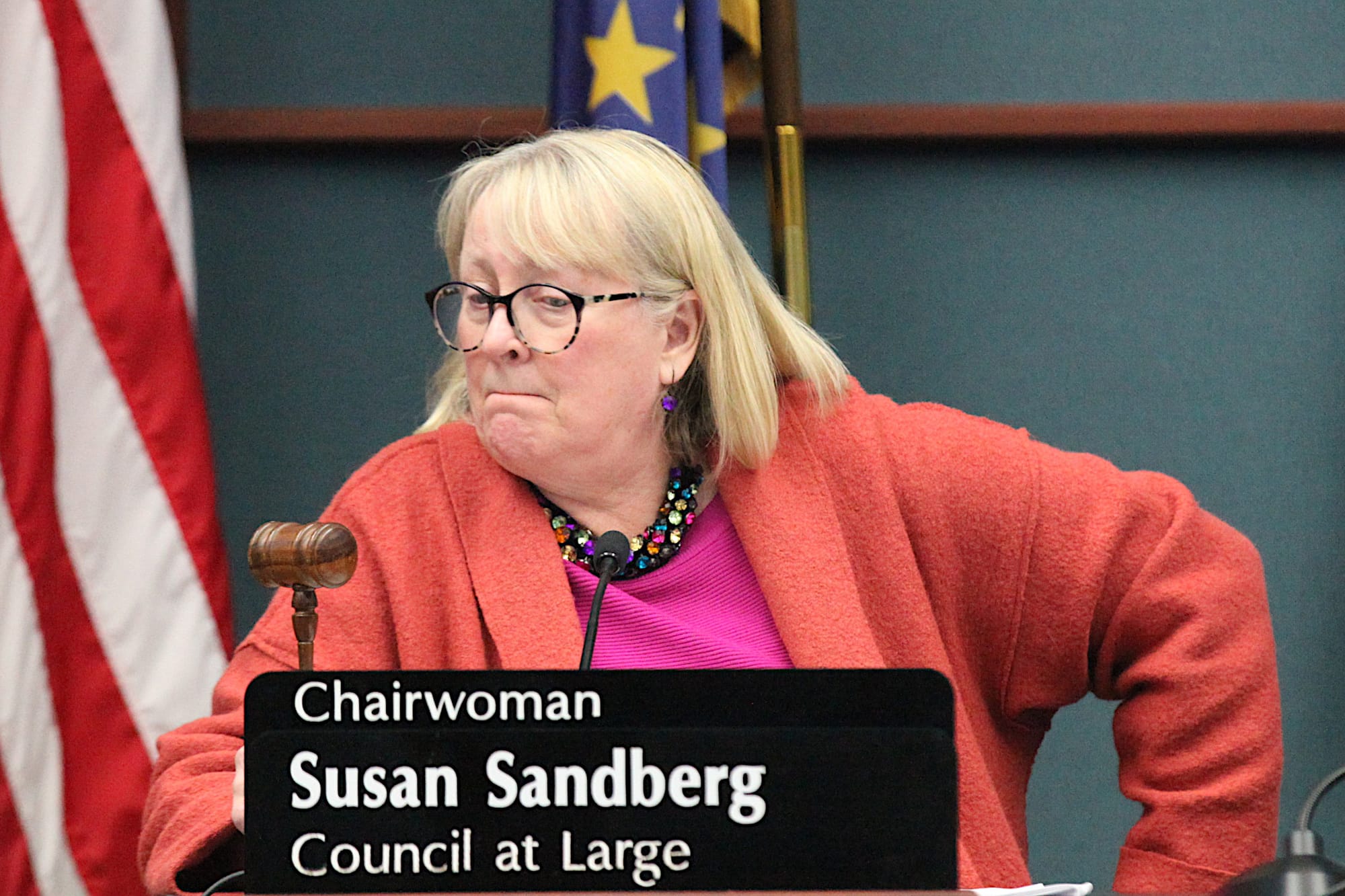
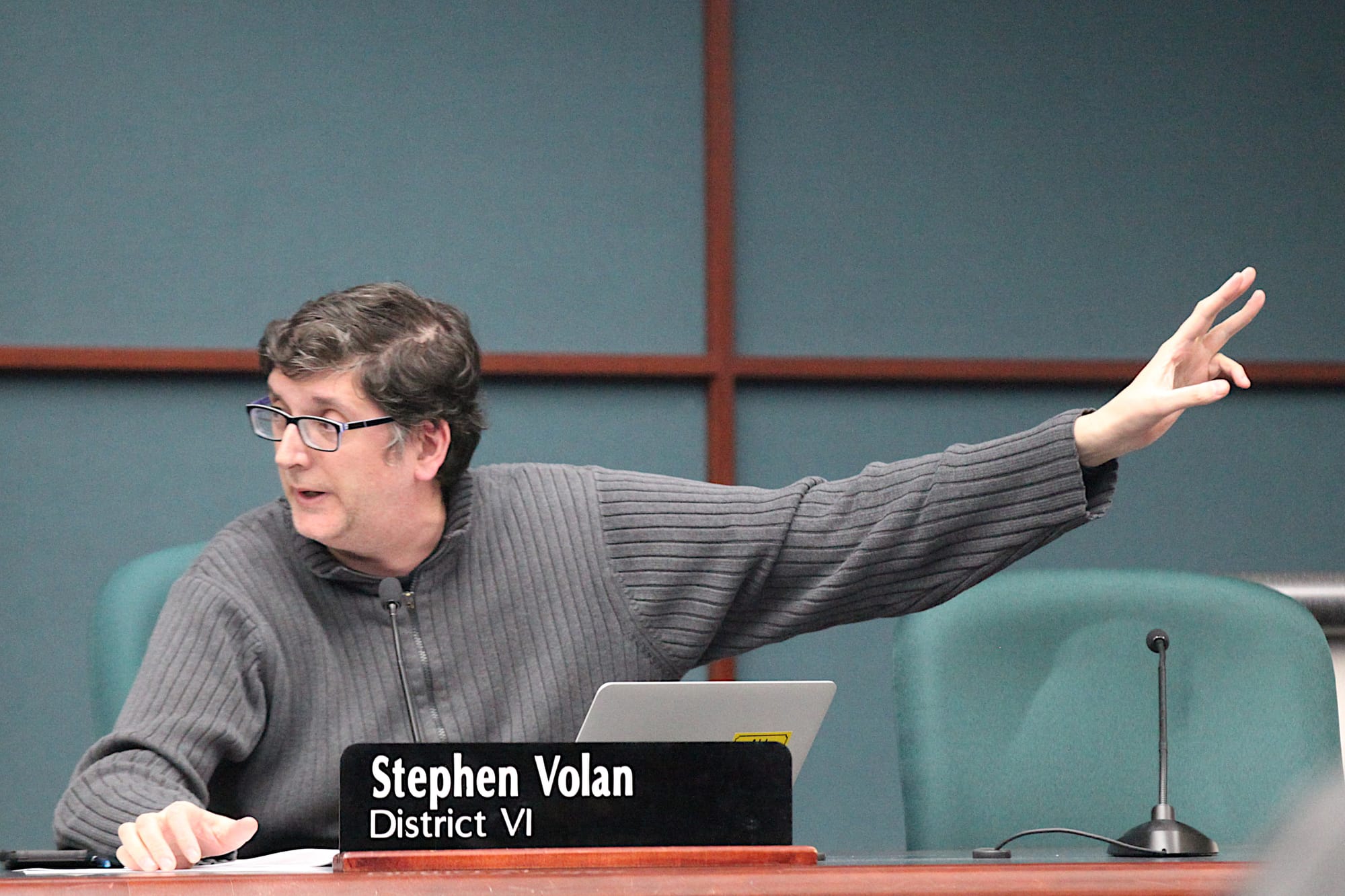
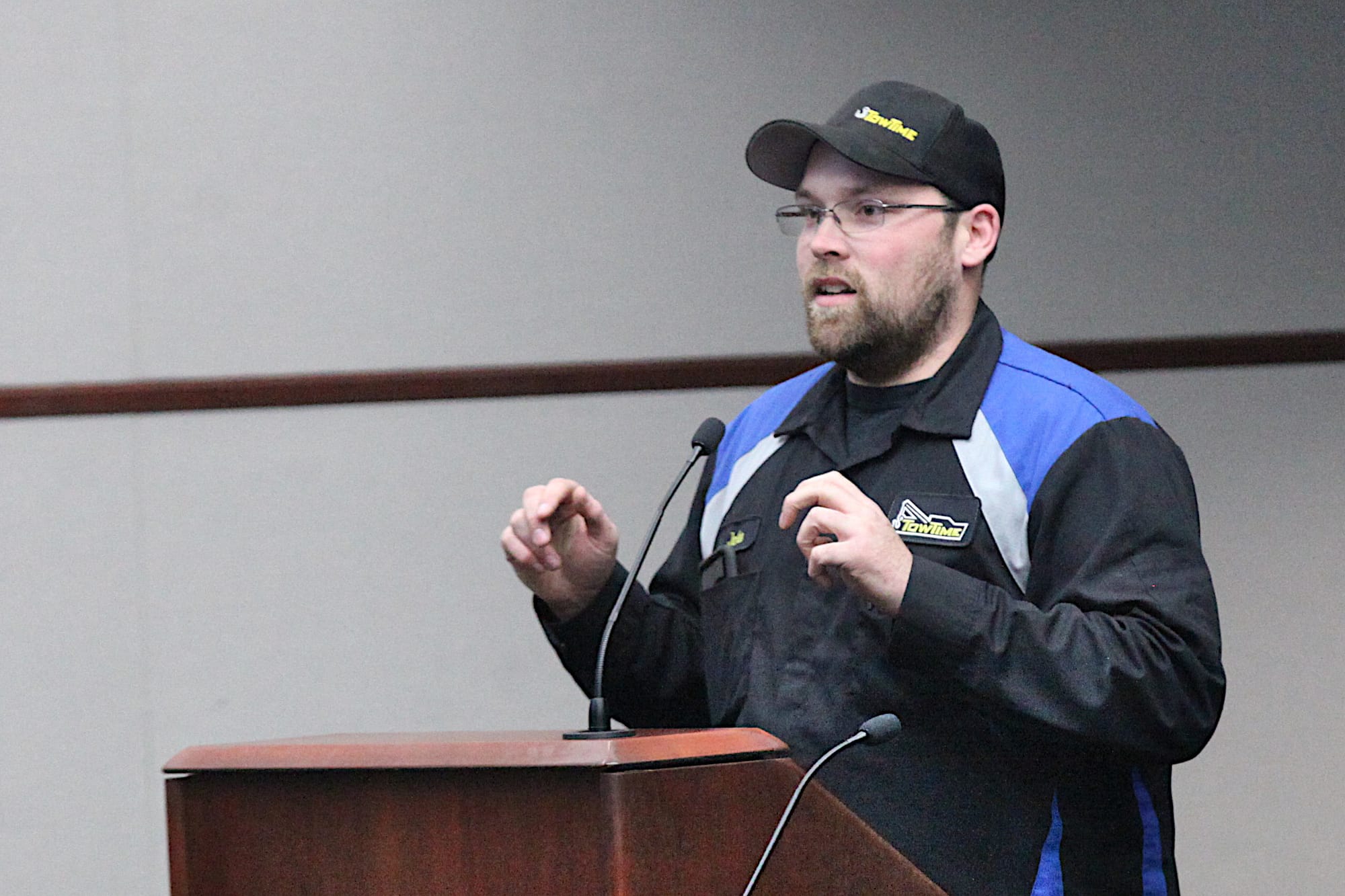
Bloomington’s city council will have a proposed non-consensual towing ordinance back on its regular meeting agenda for continued consideration next week, on Feb. 19.
The proposed new local law establishes a licensing regime for companies that remove vehicles parked illegally on private property. An annual license would cost $350 a year.
On Wednesday, after three and a half hours of deliberations by the city council, in its guise as the committee of the whole, some likely differences emerged between the version of the ordinance that will be enacted, compared to the legislation that was first introduced on Jan. 15.
During Wednesday’s deliberations, the council agreed to some proposed amendments, one of which increased the cap on the basic towing fee, from $125 to $135. Once the amendment is approved by the city council at a regular meeting vote, towing companies that are licensed under the new ordinance won’t be able to charge more than a $135 towing fee to drivers who park illegally on private property.
A towing company could still charge an extra $25 for using a dolly, bringing the total towing fee to $160. The per-day storage fee is limited to $25.
Another amendment, agreed to on Wednesday, is one that allows the license administrator, which is the head of the economic and sustainability department, to decide not to renew, or grant a license in the first place, if a company has violated the ordinance in the past.
An amendment that prompted around an hour of discussion was to allow an additional “administrative fee” of $25. Some towing company operators, like Jacob Padawan (Tow Time) weighed in against the figure as too low. Ken Parrish (Ken’s Westside Service & Towing) said such a fee was not necessary.
The amendment to add the administrative fee was eventually withdrawn by Steve Volan, who made the motion for its consideration.
The council will have the proposed ordinance back for consideration next Wednesday. At that point, the council could vote on amendments discussed this week, introduce and discuss additional amendments, and vote on those amendments. The council could also take a final vote on the legislation, or decide to send the ordinance back for a third meeting of its committee of the whole. The legislation as currently drafted would be effective July 1, 2020.
After the legislation was first introduced on Jan. 15, it was referred to a committee of the whole (COW) meeting, on Jan. 22. At that initial COW meeting a consensus emerged that the ordinance needed more input from stakeholders like property owners who use towing companies to remove vehicles from lots they own.
When the ordinance came back to the council on Feb. 5, council president Steve Volan’s preference was to establish an ad hoc four-member committee to which the ordinance would be referred.
On Feb. 5, and at this week’s COW meeting as well, Volan and other councilmembers used the legislative procedures related to the towing ordinance as a venue to skirmish on a question that’s been lingering since the first meeting of the year: Should the council establish a slate of standing committees or continue to use its COW?
On Feb. 5, the vote to refer the non-consensual towing ordinance to the COW, instead of a four-member committee, was split 7-2. Only Volan and Kate Rosenbarger voted against it. As a part of the council’s motion, it delegated to the COW the option of committing to an additional COW meeting about the towing ordinance on Feb. 26.
On Wednesday, Volan wanted to exercise the Feb. 26 option, because he wanted more time to try to craft a better amendment on the administrative fee. But his motion to re-commit the non-consensual ordinance to another COW meeting on Feb. 26 failed on a vote that was split 3–4. Councilmembers Isabel Piedmont-Smith and Kate Rosenbarger had left by the time the vote was taken, which was approaching 11:30 p.m.
Joining Volan in supporting the motion for another COW meeting on Feb. 26 were Dave Rollo and Ron Smith, leaving it two votes short of the required majority on the nine-member council.
One factor that on Wednesday might have turned the mood of the council against another cycle of consideration was a brief turn from city attorney Mike Rouker. He weighed in on the administrative fee amendment, to which the council devoted nearly an hour of deliberations.
Rouker led off his remarks by noting that the ordinance had not been initiated by the city’s administration. It was put forward by former councilmembers Andy Ruff and Dorothy Granger, and is now being carried forward by Jim Sims.
Rouker said it was unsurprising that towing companies wanted to charge more than the ordinance, as drafted, allows. The council had been talking to industry representative for around an hour about what they should be allowed to charge. Rouker said, “And I find it to be perhaps the least surprising thing in the world that they have said: More.”
Rouker spoke against an administrative fee, saying that if the goal is to increase the amount that tow companies can charge, then that would best be done by increasing the basic towing fee. That would be more transparent to the public, Rouker said.
Towing company operators pointed to an administrative fee as necessary to cover costs like credit card fees and the effort it takes to police a lot for illegally parked cars. Rouker countered by saying that the justifications offered by tow company operators appear the cost of doing business in general.
One amount floated by a tow company operator as an appropriate administrative fee was $65. That would translate to a total charge of $225. Rouker said, “If we want to let them charge $225, then set it at $225.”
But Rouker also spoke against setting the fee that high, not just against using the administrative fee to achieve that result. Rouker offered a comparison to a different type of towing situation, one that’s not regulated by the proposed ordinance, but still somewhat parallel—city-initiated tows.
The city allows those companies doing tows for the city to charge $125 for the tow, $25 dollying fee and $25 per day storage, Rouker said. “That’s it. That’s the full amount [towing companies] are allowed to charge. And they’re doing fine,” Rouker said.
Rouker concluded, “I am suspicious of the notion that $225 is a necessary fee to stay in business.”
Rouker’s commentary seemed to dampen most of the enthusiasm in the room for trying to dial in the exact amount for an administrative fee. “A case can be made always for some different amount,” said councilmember Matt Flaherty, adding, “At some point we’re just going to have to decide what we think is reasonable and go with it.”
Draft Amendments




Comments ()